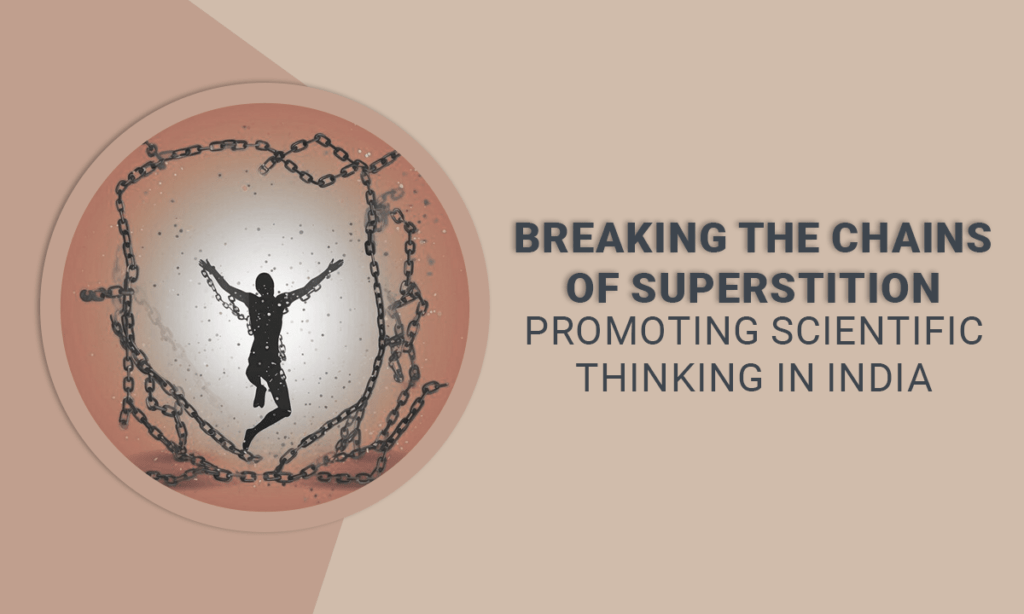Superstitions are powerful, especially in India. And ironically, one person’s superstition is another person’s religion. To quote an incident, we were on our way to a function when a black cat crossed our path while we were driving. Suddenly, everyone became concerned, as if something bad was about to happen. An Indian belief holds that a black cat crossing the path is a bad omen because the colour black is associated with evil, while some say it is associated with Lord Shani. We have strange rituals practised by the older generation, but are we sure that Gen Z is completely immune to them?
Not really. Researchers have explained why even intelligent, educated, emotionally stable adults believe in superstitions that they know are ridiculous. Most of the time, fear of the unknown leads to irrational patterns of thought, which manifest as such rituals. We will look at some common superstitions in India and what they mean.
A broken picture or idol brings bad luck
This saying may have originated because mirrors were expensive in ancient times. Therefore, to avoid negligence, this saying was coined. On the contrary, according to the Japanese practice of Kintsugi, the breaks add value to the broken object and serve as a reminder to remain optimistic when things go wrong.
Starting something new on Tuesday
According to Hindu Dharma, starting something new on Tuesday is considered unlucky. However, different states have different interpretations of the same saying. While Tuesday is considered bad luck in Karnataka, it is considered a good day to start a new business or job in Andhra Pradesh.
Cutting nails after sunset
In Hinduism, cutting nails at night is thought to irritate Goddess Laxmi, which can have an effect on one’s financial situation. This could be because there was no electricity in the past, and people had to cut nails with knives. This was most likely just a precaution.
Implications of superstitions
Superstitions are a part of public life in India, so it is difficult to ignore them completely. Surprisingly, it can be found in all societies, not just India. As long as they are private and harmless, we can take a backseat. What we discussed above may not be harmful in the long run, but there is a great deal of ignorance in rural areas regarding primitive beliefs, which are also linked to religious beliefs, making them dangerous. For example, a couple in Uttar Pradesh murdered their six-year-old daughter with rickets after a self-proclaimed god-man predicted that the next child would be a boy and healthy. Similarly, in Kerala, a man sacrificed four women in order to gain divine powers. It is shocking that such things occur in these days of scientific advancement.
What is scientific thinking?
Using scientific logic to think is thought to be logical, rational, and mature. This entails repeatedly observing and verifying a fact prior to reaching a conclusion. A scientific mindset is required for a society to thrive. A society that is free of superstitions and irrational practices is a dream come true. However, with the advancement of technology and information, things are slowly changing. People have begun to think rationally, and before believing anything, they look for a scientific basis for it. This is critical for cultivating a wise and knowledgeable society.
How to inculcate scientific beliefs
Every learning process should begin with children. They should be taught from the start to avoid superstitions and irrational beliefs. They should be taught how to evaluate and deal with superstition scientifically. As parents and teachers, we must foster children’s curiosity so that they grow up to be rational and practical. Science is a method of teaching minds to think logically and rationally. Engaging young minds’ needs, rights, and expectations through appropriate channelling of their energies would propel the nation toward prosperity and development. Exploring the inherent Scientific Temper in children and students, not just through routine or curriculum-based efforts but as a societal responsibility taken on by parents and teachers, will play a significant role in the country’s technological progress.
History has shown that the scientific approach is the best way to solve and handle society’s problems. By thinking scientifically, mistakes and false assumptions can be avoided. Humans, in general, are emotional and passionate creatures who frequently make incorrect or biased decisions when it comes to matters of self-interest. The scientific method assists us in making better decisions and provides a rational approach to decision-making.
Significance of instilling scientific beliefs in youth
The youth must be educated in such a way that a scientific temperament is instilled in them from an early age. The youth are the backbone of any progressive society, and it is critical to instil this scientific mindset in them for the nation’s growth and development. A new approach to education is the solution to this. This new approach should be based on practicality and scientific reasoning.
Students should be taught to question the ‘what’ and ‘why’ of everything rather than simply memorising it. They will be able to develop a logical and scientific mindset as a result of this approach. In addition, Indian youth should be exposed to a wide range of scientific disciplines.
This is necessary because it will allow them to broaden their horizons and explore various scientific fields before deciding on the one that best suits their capability and interest. The development of a scientific temper among Indian youth is crucial for ensuring a knowledgeable, educated, and leading future generation.
People Also Read: Challenges and Innovations: Expanding Access to Ambulance Services in Rural India
